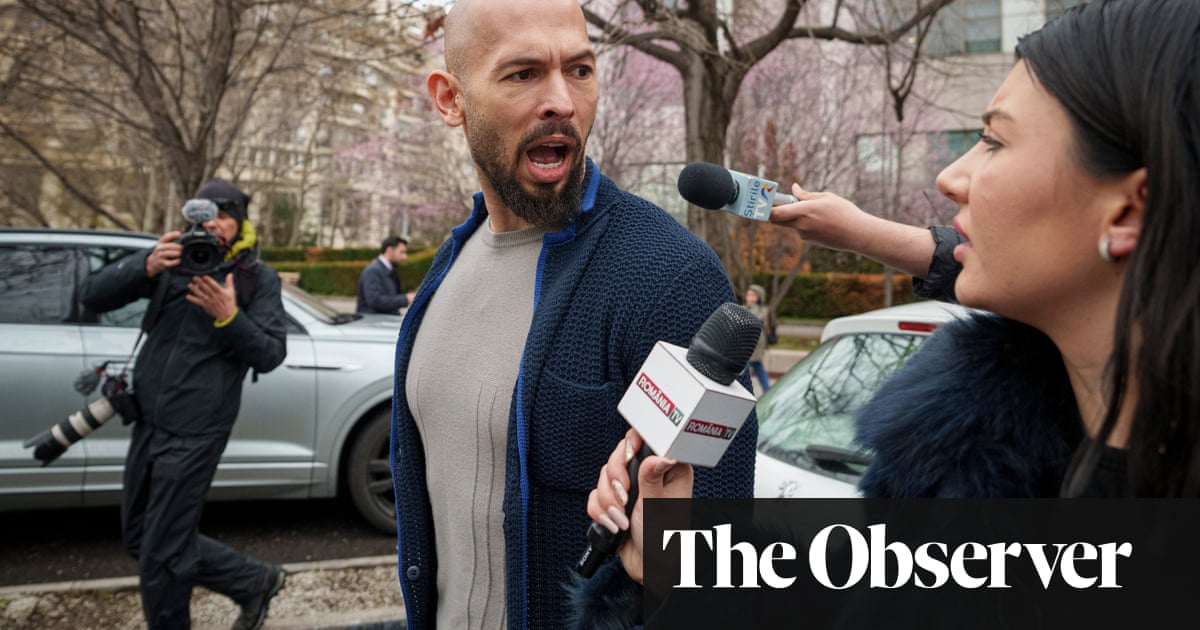She’s done Shakespeare (“He remains the best and only bard this country has ever produced”), she’s done Christmas (“Christmas is everywhere. On television, in the high street – even in normally sacred places like church”), she’s done the history of Britain (“He had six wives all called Catherine. He was a Catherineoholic, or Catholic for short”) and she’s done Earth (“It’s difficult to believe I’m standing in the world’s oldest city, because I’m not”). Now, finally, we have Philomena Cunk on life.
Bolton’s finest and worst-informed pundit-presenter, who first graced our screens in Charlie Brooker’s Weekly Wipe and is played by the perennially deadpan Diane Morgan, has returned for a seasonal special that takes us through the profundities that “humanitkind” has puzzled over for centuries and the various ways we have tried to make sense of our lives through art, religion and philosophy.
As ever, she interviews a variety of experts “to ask some of the most significant questions you can ask with a mouth”. Beyond the gags lies the game of trying to work out how much each of the “professional mammals” is aware of the parodic intent and who is playing as straight a bat as he or she seems to be. We can be relatively sure that Brian Cox and Jim Al-Khalili know what is going on, but there is every chance, I would say, that the University of Cambridge professor of the philosophy of religion Douglas Hedley (tweed, corduroy, Heseltine mane) has not yet made the acquaintance of Cunk and is still sitting in the panelled study where she left him, musing on whether or not God is “even in cupboards”. But the increasing degrees of bafflement demonstrated by the King’s College London professor of surgery Prokar Dasgupta as Cunk’s questions and assertions mount (“Only 40% of people have skeletons”; “Knees are a con”) makes him either a beautiful naif or the greatest actor since Laurence Olivier. Respect is due, either way. I would like someone at University College London to check on their English professor Greg Dart, though. I think she may have broken him.
Religion and medicine done, she turns her attention to art. She is not a fan of Vincenzo van Beethoven Gogh. “No detail to his crows,” she says, pointing at one of his wheat fields paintings. “It’s actively bad. Better if he’d never painted anything, not even a bog door in a home for the blind. Anyway, that’s my view. What do you think?” The camera pans to reveal the man standing on the other side of the frame – the history of art professor Richard Thomson, from the University of Edinburgh. He might need to be checked on, too.
The rest is the familiar mix of jangled factoids (“Darwin rode a beagle to the Galápagos, where a giant tortoise gave him an idea”), distinctive turns of phrase (“a form of organised grovelling called worship”) and moments that transcend capture by mere words, such as Cunk’s face when Prof Joyce Harper talks her through the human reproductive process. “Christ,” says Cunk. “I hope nothing like that ever happens to me.” There is the running gag about the release of Belgian techno anthem Pump Up the Jam being Cunk’s main method of measuring the passage of time, and another involving the minuscule difference between the northern pronunciation of “our souls” and the word “arseholes”, which Brooker and his writing team clearly feels is too good to waste. Your mileage may vary.
We get plenty of pure Cunk commentary, too, which for those of us with a low embarrassment threshold is a blessed relief from the interviews. It is also a joy in its own right, as she explains with her customary earnest confidence how we are all “mutated from monkey meat”, that “female genitals are kept indoors for safekeeping” and that Fyodor Dostoevsky is “the author of several books still not read to this day”. She later asks what Dart would give Crime and Punishment out of 10. “Nine?” he whispers. I do worry.
The show feels a little more scattergun than usual, with Brooker’s personal obsessions (so many jabs at Apple and its products) being revealed too often. The 70 minutes could have been tightened to an hour with very little lost – indeed, quite a lot gained. But it is impossible not to remain a fan. Morgan is peerless, the jokes plentiful and wide-ranging, from the light twistings by people who know exactly what the facts are and how far they can be stretched for comic effect all the way through to the “our souls”. Merry Christmas, everyone.

 3 months ago
53
3 months ago
53













































